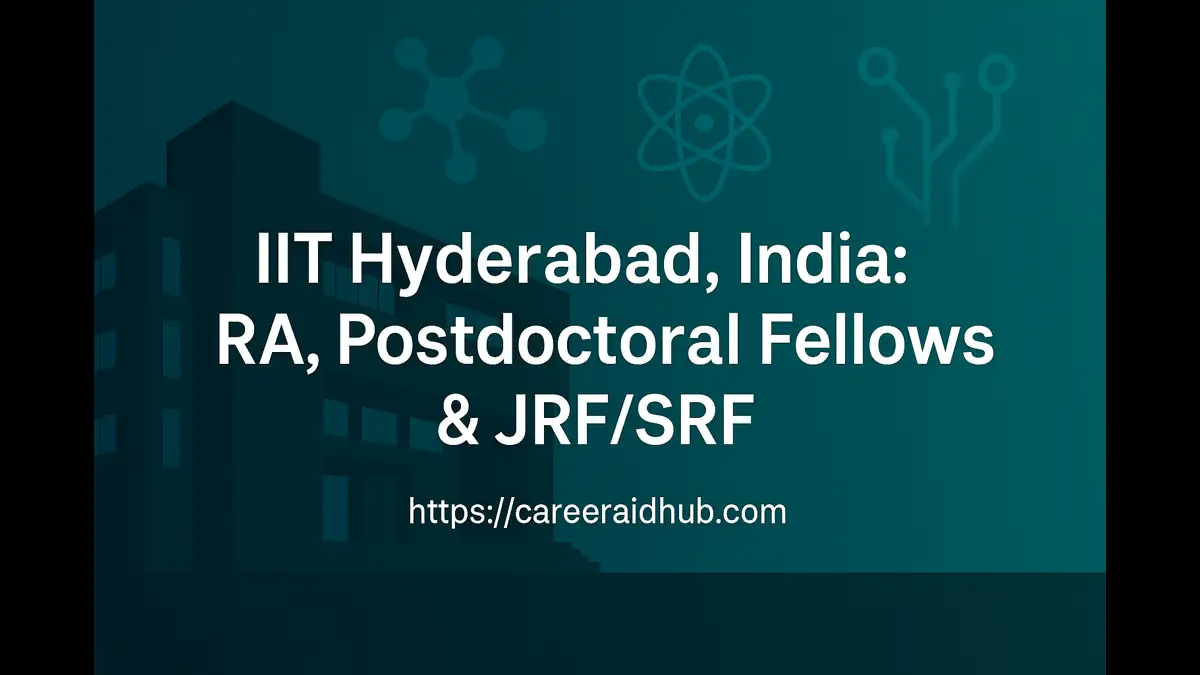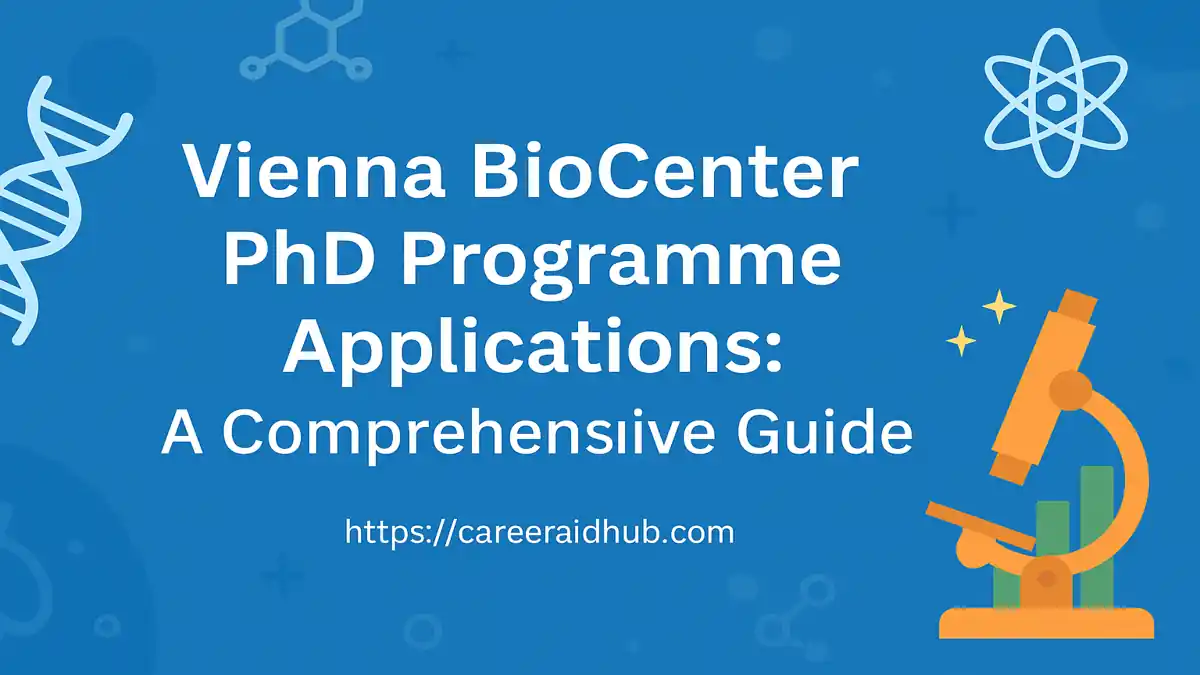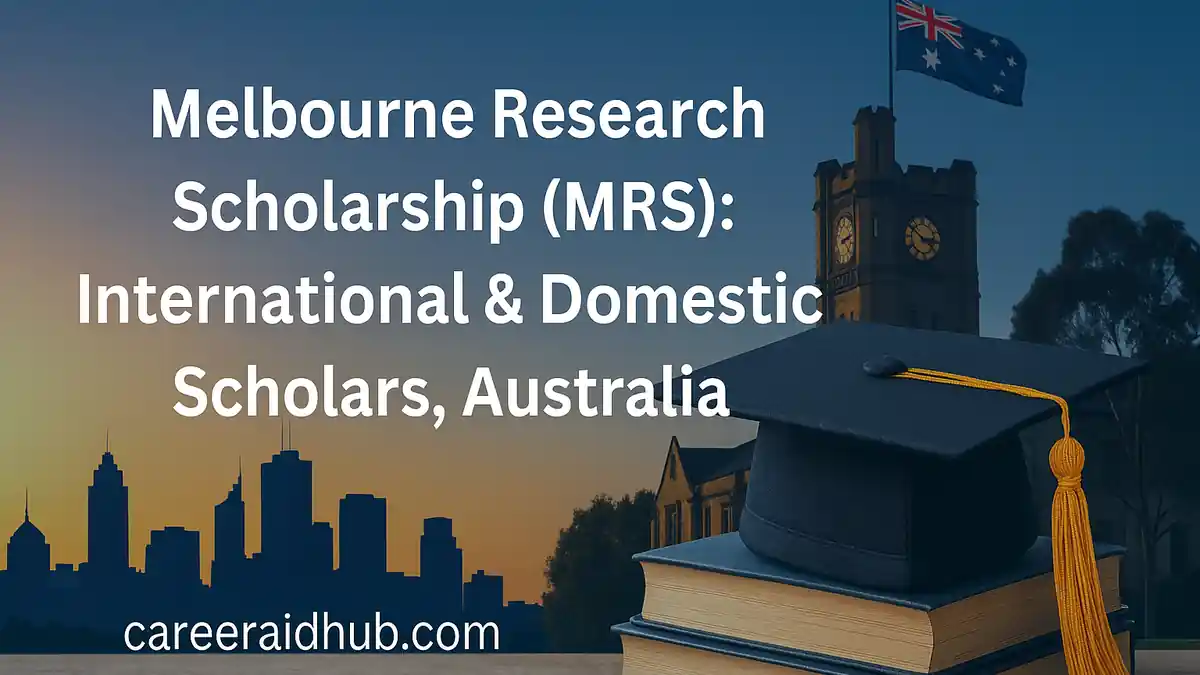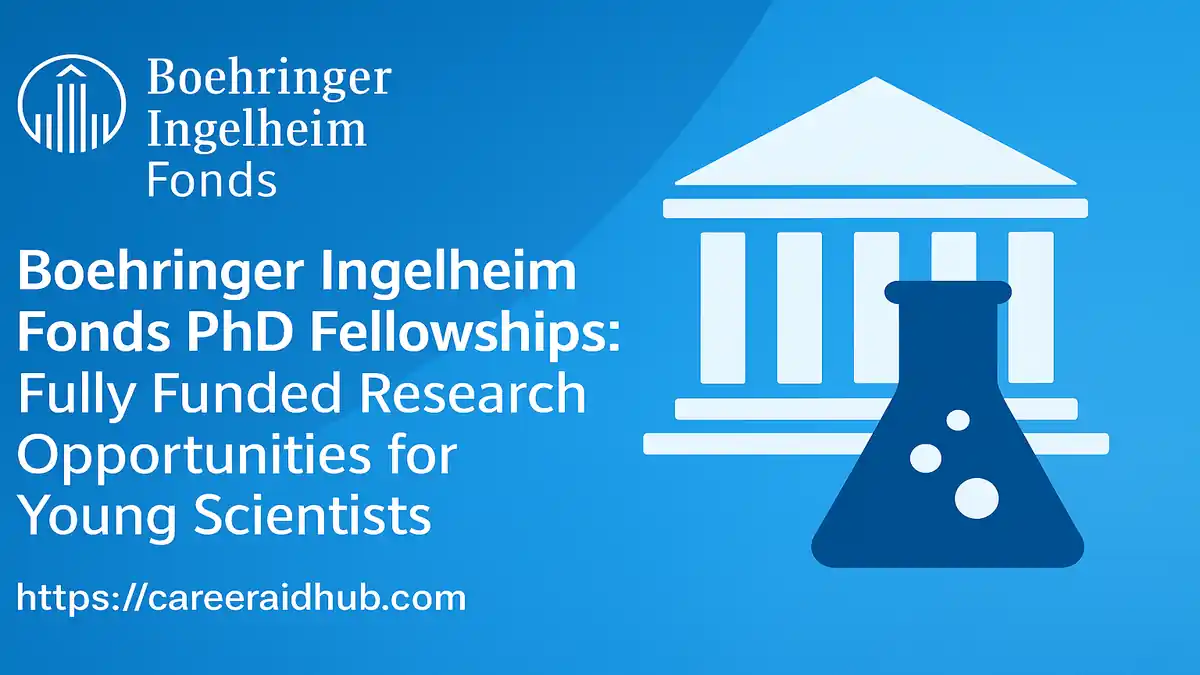The HBIGS (Heidelberg Biosciences International Graduate School) International PhD Program stands as one of Europe’s most prestigious doctoral opportunities for emerging researchers in biosciences. This highly competitive and fully funded fellowship enables talented candidates worldwide to pursue advanced training in biomedical science, supported by a renowned academic ecosystem in Germany. Offering access to world-class laboratories, expert mentorship, and dynamic research environments, the program equips doctoral scholars with the skills, network, and exposure needed to excel in science and innovation.
About the HBIGS International PhD Program
Program Overview
Scope & Objectives
The HBIGS fellowship supports a strong foundation in bioscience research through intensive academic training and collaborative project work. Central themes include cardiomyocyte polyploidization and T cell signaling, equipping candidates with essential research methodologies and critical thinking skills necessary for modern biosciences.
Institutional Support
This program is spearheaded by the European Center for Angioscience, in close coordination with Heidelberg University and partner institutions. Together, they foster innovation in life sciences by integrating educational excellence with research-focused culture.
justify;">Legacy & Reputation
Backed by decades of institutional credibility, HBIGS continues to shape the future of health sciences through interdisciplinary research. The program reflects a strong commitment to nurturing talent and addressing global biomedical challenges.
Key Program Details
Institution: Heidelberg University and Partner Institutes
Duration: 3 to 4 years (subject to research track)
Mode of Study: Full-time, part-time, or hybrid options available
Core Disciplines: Developmental biology, regenerative medicine, biochemistry, and signal transduction
Program Goals
Provide a research-intensive curriculum with strong mentorship
Offer direct access to cutting-edge laboratories and methodologies
Foster professional development through workshops, presentations, and international collaborations
Key Benefits of Joining HBIGS
1. Hands-On Scientific Training
Participants receive in-depth exposure to experimental techniques and interdisciplinary practices, enabling them to work on real-world biomedical problems. Training sessions focus on in vivo models, genetic engineering, microscopy, and high-throughput screening.
2. Innovation-Driven Research
Fellows contribute to pioneering research in cardiovascular development and immune system signaling. Working closely with experienced scientists, students participate in publications, patent filings, and translational science projects.
3. Career Development Pathways
Graduates move forward into leadership roles across academia, biotech companies, and public research organizations. The program also includes dedicated career guidance, resume workshops,
and entrepreneurship training.
4. Global Professional Network
Connect with international peers, alumni, faculty, and collaborators from partner universities and research institutions, forming lifelong professional relationships.
5. International Recognition
The HBIGS degree carries global value, opening doors to prestigious postdoctoral opportunities, faculty appointments, and executive roles in science-driven industries.
Why Choose the HBIGS Fellowship?
Comprehensive Financial Support
Fully funded PhD positions
Competitive monthly stipend
Project-specific research funding
Additional allowances for travel and relocation
Esteemed Faculty Mentorship
Candidates train under the guidance of globally recognized researchers in molecular biology, cardiology, and immunology. Faculty involvement ensures that students receive focused mentorship throughout their PhD journey.
International Exposure
Students engage in interdisciplinary research collaborations, joint conferences, and symposia hosted across Europe. Cross-cultural learning and scientific diversity are key elements of the HBIGS learning environment.
Advanced Infrastructure
The program offers access to core facilities, including imaging suites, genomics platforms, animal research centers, and molecular diagnostics labs.
Career Prospects After Graduation
Graduates of HBIGS are equipped with both scientific and leadership competencies, enabling them to:
Secure academic positions as lecturers or assistant professors
Work in R&D departments of pharmaceutical and biotech companies
Lead scientific
innovation teams or establish startupsApply for global fellowships and faculty pools
Alumni are often published in top-tier journals and cited for their contributions to science and medicine.
Ideal Candidates for HBIGS
Eligible Applicant Categories
Graduate Students: Enrolled in or completing a Master’s degree in biology, molecular sciences, or related disciplines
Early Career Professionals: Seeking deeper immersion in laboratory-based research
Innovators and Founders: Interested in converting biomedical innovations into startups
Global Researchers: Focused on academic mobility and international research engagement
Eligibility Criteria
Academic Background
Master’s degree (or equivalent) in life sciences, molecular biology, biomedical sciences, or similar
Experience Requirements
Other Requirements
Age Limit: Subject to institutional policy
Nationality: Open to global applicants
Language: Proficiency in English required (TOEFL/IELTS accepted)
Additional: Project-specific skills (e.g., primary cultures, mouse models) may be beneficial
Application Process
I – Step: Register Online
Begin by creating an account on the official HBIGS application portal. You will receive login credentials and access to your application dashboard.
II
-Step: Choose Your Research ProjectIII-Step : Prepare Your Documents
Updated resume or curriculum vitae
Personal statement detailing your research interest and motivation
Academic records (transcripts, certificates)
Two academic letters of recommendation
Research proposal (where applicable)
IV-Step : Submit the Application
Ensure all documents are uploaded and the application form is complete before the deadline.
V- Step : Attend the Interview
Shortlisted candidates will be invited for an online interview to assess fit, motivation, and research aptitude.
VI-Step : Await Results
Selected applicants will receive formal admission notifications, including next steps and onboarding details.
Tips for a Strong Application
Proofread Carefully: Eliminate errors and ensure clarity in your personal statement
Align Research Goals: Match your research proposal with ongoing HBIGS projects
Highlight Your Unique Value: Emphasize skills, experiences, or ideas that set you apart
Ask for Feedback: Seek input from mentors before final submission
Financial Coverage & Additional Benefits
Monthly Stipend: Sufficient to cover living costs in Germany
Research Allowance: Funding for lab expenses, tools, and consumables
Relocation Assistance: Support for moving to Germany and initial setup
Other Perks: Health insurance, housing assistance, conference travel grants
Key Application Deadlines
Based on historical patterns and the most recent HBIGS admissions cycle, the tentative timeline for the 2026–2027 cohort is as follows:
Position 1: Cardiomyocyte Biology (POP 3)
Application Window Opens: Mid-January 2026
Application Deadline: 31 March 2026
Program Start Date: 1 April 2026
Position 2: T Cell Activation (TRR186/A05)
Application Window Opens: Late February 2026
Application Deadline: 31 March 2026
Program Start Date: 1 April 2026
Note: Exact dates will be confirmed via the official portal. Applicants are encouraged to check regularly.
Program Contacts
Summary
The HBIGS International PhD Program is an unparalleled opportunity for talented bioscientists to thrive in a globally respected academic setting. With fully funded research positions, personalized mentorship, and exposure to groundbreaking research in cardiac and immune biology, this fellowship nurtures scientific leadership and innovation. Participants leave not only with a doctorate but also with a well-rounded, international research profile poised for global impact.
Quick Reference Table
| Field | Details |
|---|
| Program Name | HBIGS International PhD Program |
| Organization | European Center for Angioscience |
| Location | Germany, Europe |
| Eligibility | Master’s degree; research background preferred |
| Focus Areas | Cardiomyocyte Biology, T Cell Activation |
| Application Dates | Jan–Mar 2026 (tentative, check official site) |
| Official Link | Apply Now |
References
https://www.hbigs.uni-heidelberg.de/
https://www.hbigs.uni-heidelberg.de/fellowship-positions.html
Frequently Asked Questions (FAQs)
What is the HBIGS International PhD Program?It’s a fully funded research fellowship offering advanced training in biosciences and career development.
Who can apply to the program?Applicants should hold a Master’s degree or equivalent in biosciences or related fields.
How long is the PhD program?The duration is typically 3 to 4 years, depending on the chosen research track.
Is the program internationally recognized?Yes, it is globally recognized with international collaborations and research exposure.










